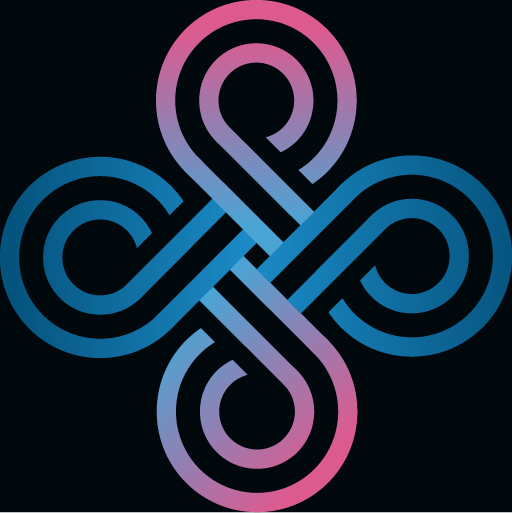The Invited Philosophers
Gilles & Pedro
The Menu
- First Course: Mediterranean salmon with dill and Za’atar sauce, couscous and oven-baked green beans
- Second Course: Cheese plate with multi-grain sourdough bread and crackers
- Dessert: Gilles Signature Almond Cake*
- Drinks: French Saint-Emilion Grand Cru Wine*
*Courtesy of Gilles & Pedro
The Philosophy
Sartre’s Being and Nothingness is not an easy read but it is fascinating. The French edition of the book has 822 pages in small font. Gilles and Pedro did their homework when they came to dinner and taught me, through our conversation, a lot of the nuances of L’Être et le Néant. Gilles, who is French, recounted how in France, philosophy is a required high school course. He accomplished a great feat by finding a French podcast, which summarizes the book with refreshing clarity and at times humor, and as the icing on the cake, we also hear Sartre himself speak.
The Summary
Our world is made of objects that are something based on their function or beingness. Most humans are objects too. The function of a phone, desk, car, house, plane is clear. The function of a human is not clear and Sartre argues that it depends whether one believes in God or not. A god-fearing person will believe humans are here to do God’s deeds, whatever that may be, depending on the particular god. An atheist, like Sartre himself, argues that the function of a human is only to exist and intrinsically unknown but is primarily decided by the judgements of others. A person becomes an object when others judge how they need the person to be or act. A person is also objectified by the degree in which the person yields to other people’s judgments or creates judgments for himself or creates an identity for himself. Sartre argues that the true nature of the human is to be nothing and that freedom from judgement is true freedom. Humans however, do not like to feel they are “nothing”, they cling to an identity and choose the prison of objectification over freedom.
Analysis
Identity as a Prison
A fictional character in one of Sartre’s book stated that: “Hell is – other people”. What he meant, and he clarifies it in the podcast, is not that it is hellish to interact with other people but that we create a hellish situation for ourselves by allowing others to judge us and define us. He argues, however, that there is no escape from hell when a person tells himself “I will not be judged or defined by others”, and then proceeds to judge himself and define himself. A person may define himself as being this or that, someone sensitive, shy, ambitious, friendly, or a ladies-man, street-smart, or a father, a husband, a waiter, a thousand other categorizations. Often people will say: “I am just being myself” or recommend to others: “Just be yourself”. Which only leads back to hell.
To give yourself a role is to constrain yourself to that role. But why do we do it?
Every judgement that sticks to us, be it by others or our own judgment of ourselves, is like mud that sticks to our skin, layers upon layers, until we cannot perceive the outside world and our muddied eyes stop seeing. It is hell on earth. We forget we can wash it off.
Humans seek hell because without an identity, they feel lost. If nothing defines us, then it means that we are nothing. That seems unacceptable. That’s why humans enjoy explaining who they are, what they want, to be recognizable in the eyes of others.
But for Sartre, humans are not “something”, they are nothing, they just exist. Existing means to drop all definitions of oneself, all the categorizations, all the assigned qualities, to exist is to live the adventure of the human life. We, humans, negate ourselves and our freedom by defining ourselves “to be” something. The verb “to be” is a transitive verb that requires an attribute: I am “something”. Nothing follows after the intransitive verb “to exist”.
I exist.
Freedom – A Practical Lesson
How does this all help us in our everyday life in which we have to interact with other people and the idea of not having an identity seems unthinkable? We may have a boss who judges us or our work, we may have a spouse, or parents or a daughter or son who expects and demands we act in a certain way. And even if others are not judgmental or we can tune them out, we judge ourselves also, because we want to please or do our work right, or satisfy our desires, achieve something, and often we also judge others, contributing to the hell of humanity – using Sartre’s words.
Freedom is simple actually. It requires some discipline. But it starts with awareness. A little awareness every day of all the times we feel judged and how it affects us, and of all the times we judge ourselves and others. It also requires courage. The courage to experiment with one’s life as if it was an adventure, a natural process that we participate in and which we can affect in little or larger ways but where ultimately uncertainty rules. To experiment we need to learn to “just do” what the current moment calls upon us to do. At first, because we are stuck in our identity, we will not be able to react to situations as they appear, without any judgement of who we are. For example, a situation may call upon us to speak in public, but we have an identity of a shy, crowd-averse person. While it seems like hell to that person to speak in pubic, hell is being fearful of it and having created that limitation by nurturing that identity. Little by little we can embrace being nothing, and with it, we tap into the essence of existence and freedom.
Nothingness
Sartre did not define the human existential essence he calls nothingness, for one good reason, because it’s essence is to be free of definitions. And he contrasts it with everything else that can be defined. Thus: nothingness. Being free of definitions it leads to freedom. It leads to just existing with no labels attached.
Other philosophers and psychologists may call it the subconscious or a different dimension of consciousness. But eastern philosophers and spiritual masters from 2500 years ago also call it nothingness or emptiness or nameless. They call it so because they cannot describe it. Its essence is indescribable, but they claim and I think we can feel it once we find that nothingness or emptiness, that with it comes a certain lightness of being, an intuition to act and react in a way that life becomes easy, worry-free, and from it comes freedom.
The Tao that can be told is not the eternal Tao
The name that can be named is not the eternal Name.
The unnamable is the eternally real.
Naming is the origin of all particular things.
Tao-Te-Ching, Chapter 1

